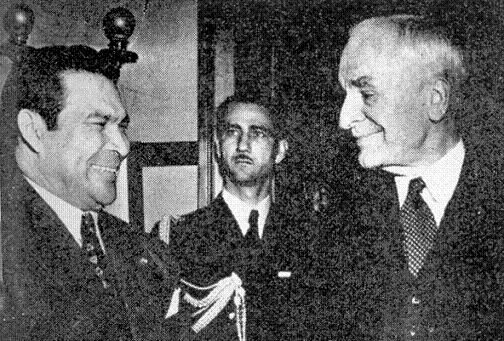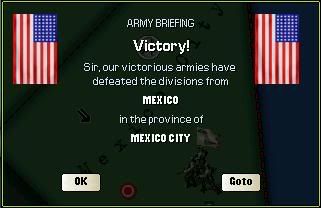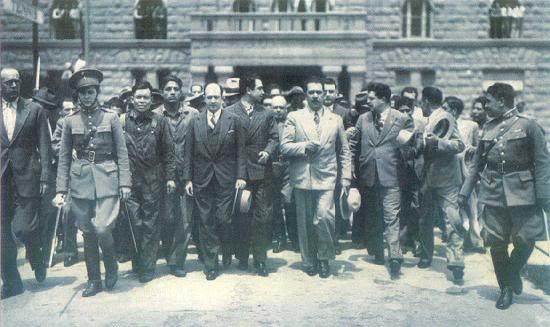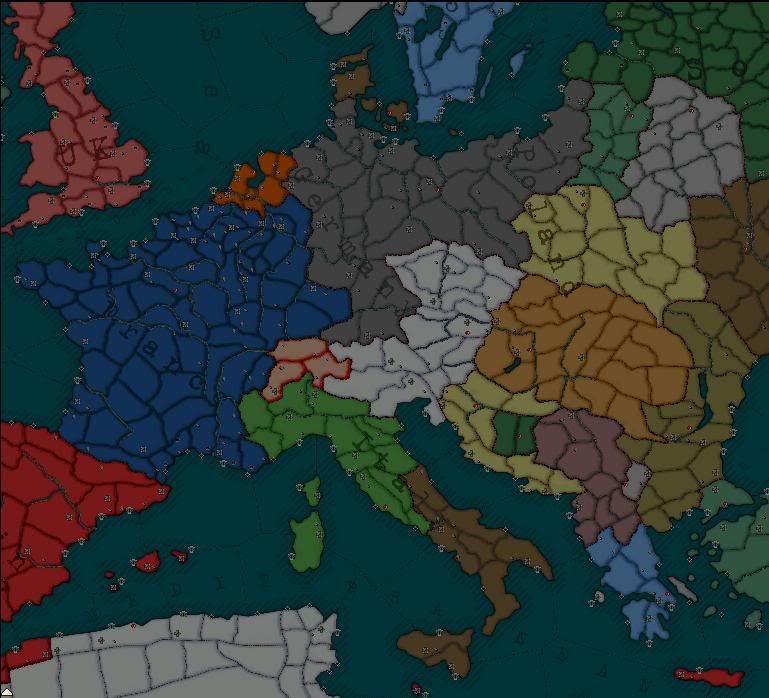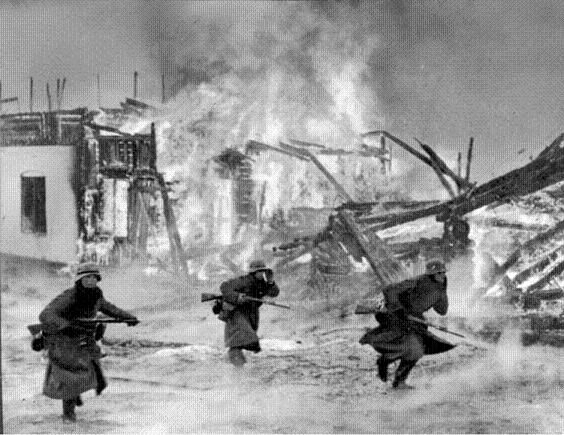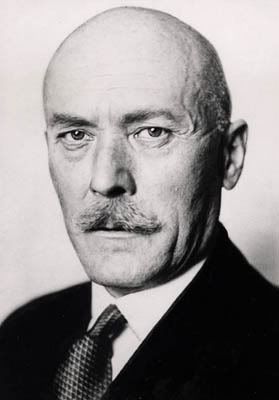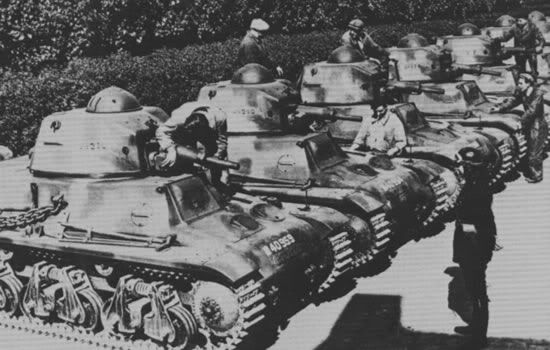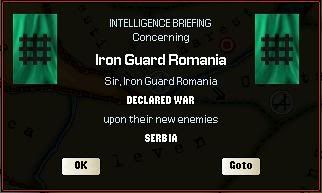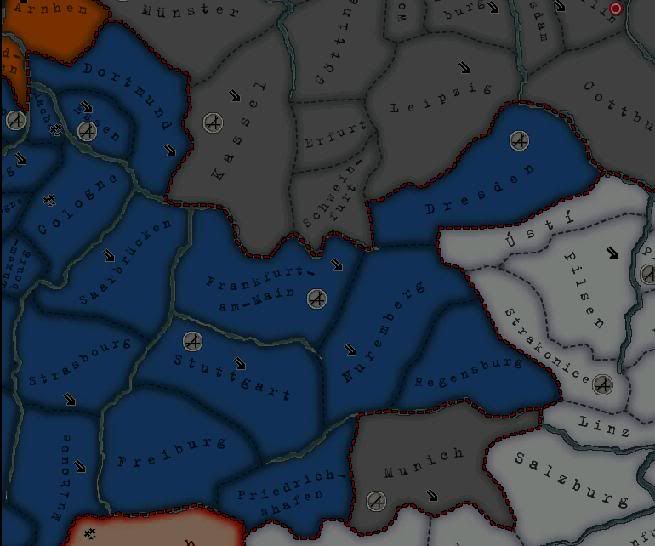BipBapBop: Annexation represents unconditional surrender and allows for at least some semblance of an occupation, and allows me to dictate terms more realistically than the game's peace system.
-----
America at War - Part IV
With the unconditional surrender of Cuba, a large portion of the invading force was now freed for combat operations elsewhere. Encouraged by the muted and lackluster response of the general Cuban populace, President Roosevelt, in consultation with Henry Stimson, the newly-appointed Secretary of War following Patrick Hurley's resignation in late July, decided that V. Army, although barely more than a few hours ashore, would be charged with the occupation of the island until a suitable treaty would be arranged. I. Army, meanwhile, was to be shipped to Veracruz, where it would assist in what General MacArthur envisioned would be the final assault to break Mexico's will to resist.
As I. Army slowly organized itself for the journey and V. Army began the uncertain process of attempting to pacify and police the entire island, a treaty delegation headed by Secretary of State Hull and Henry Hopkins, landed at Havana on August 8, where they were met by the American ambassador to Cuba, Joshua Wright. The trio were charged by the President to develop a treaty punitive enough to have justified an invasion, but lenient enough so as not to sabotage future US-Cuban relations; despite the years of economic depression, Cuba still remained an attractive investment to the reinvigorated American economy.
Aware of the extraordinary freedom to dictate the fate of the Cuban nation the President had granted them, the American delegation met with the defeated Cuban government on August 10 in the Presidential Palace, under the watchful eye of a battalion of American soldiers. Negotiations moved slowly; President Gomez, hoping for better terms once the populace began to rise up against their Yankee oppressors, stalled for time. The United States' initial offer was relatively innocuous: Cuba would agree to repay the United States double the amount Firtz Kuhn had used to bribe his way into the country, as well was reparations for damages done to the Guantanamo Bay, and would grant the United States the right to extradite any of its refugee citizens that it deemed 'evidently dangerous' to U.S. interests; there was to be no repeat incident of the Kuhn affair. Meanwhile, the erstwhile National demagogue continued to elude the American occupation, and many suspected he was no longer on the island.
After almost two weeks of continued heel-dragging on the part of President Gomez, the delegation was losing its patience. The United States lacked the manpower to impose itself on the whole island, but no resistance had manifested itself despite the Cuban government's sincere hopes. On August 21, General Batista, regarded by many Cubans to be a hero for his valiant defense of Santa Clara from repeated American assaults, approached Secretary Hull, offering to put pressure on Gomez to accept whatever demands they made, on the condition that the United States support his bid for power once the occupation ended. Hull balked at the suggestion and flatly refused to consider coercing the Cuban President. But Batista did not give up so easily, instead approaching Hopkins, who reacted much more favorably. As Roosevelt's personal agent to the conference, his word was enough to sway the President. Hull protested, but reluctantly bowed to the President's decision.
General Batista and Secretary Hull, August 1941.
So on August 23, the United States presented a new series of demands, far harsher than its original terms. On top of the reparations and extradition rights, Cuba would reavow the perpetual lease of Guantamo Bay and agree to expand its size by several square miles. In addition, Cuba agreed to hold new elections by the end of the year. With the threat of a military coup now looming, Gomez had no choice but to relent. The Treaty of Havana was signed August 24, 1941, amidst a surge of protest that assured Gomez would not survive the imminent elections. Publicly criticizing the treaty was a betrayal of the Cuban people, General Batista announced his intention to run for the presidency.
As the delegates worked in Havana, the war in Mexico continued. Mexico City remained threatened by II. Army from both the north and east. With Cuba defeated and the whole of I. Army now on the way, most Americans believed that the war was all but over. But the military junta in power in the Mexican capital refused to accept the inevitable; with their power reliant solely on nationalist appeals, to do so would leave them powerless and discredited in the postwar period.
With little concern for the ramifications on postwar Mexican power struggles, I. Army landed at Veracruz on August 9 and quickly moved southeast to bolster II. Army's rather precarious hold on Puebla and the surrounding countryside. Now outnumbering the Mexican army by an appreciable margin, Stillwell and Hodges went on the offensive. Secure on its flank, Clark, supported by the Atlantic Fleet and the rest of I. Army, began its march on Villahermosa on the 11th. Making up for their lack of training with a fighting spirit that gave Clark pause, the Mexican forces resisted the advance for as long as they could. But superior numbers and weapons proved too much, and Mj. General Viejo retreated toward Oaxaca, bloodied and beaten.
After the Mexican high command made no move to bolster its crumbled southern defenses, the second phase of the American attack began on the 15th. Sidestepping the Mexican army around the capital and moving parallel to Viejo's retreating army, the rest of I. Army pressed deeper and deeper into Mexico's interior, aiming for the city of Acapulco on the Pacific coast. Two days later, advanced units of Bradley's corps stumbled across the Mexican army's southern headquarters. Using the mountainous terrain to its advantage and turning its anti-air defenses to the ground, General Palafox held off Bradley's corps for over two days before I. Army at last broke through, sending the Mexicans into a rout
Back in the north, DeWitt continued to mop up the remainder of del Rio's forces trapped in southern New Mexico. Still unable to break the American lines despite repeated attacks on the 10th, 12th, and 17th, the Mexicans at last received word that DeWitt's cavalry surrounded and destroyed the last of del Rio's army north of Las Cruces on the 20th of August.
The Mexican position was rapidly becoming completely untenable. Stretched across a huge front against a technically superior and more experienced foe, the Mexican army could not continue to resist the invasion for much longer. But still, Quiroga and Mendoza vowed to continue the fight, by themselves if need be. This brave face proved ineffective, as more and more soldiers deserted their posts, and the populace grew increasingly pessimistic. But reaction was not all negative, however; some vowed to fight to the bitter end resisting Yankee imperialism, and to uphold the legacy of the Zapatatistas.
On August 21, their chance to prove just that came. The whole of II. Army, four division in total, launched a two-pronged attack directed at the capital. Outnumbered two to one, the Mexican lines buckled and could not hold the American forces back. But rather than retreat in disorder, the Mexican forces maintained their cohesion, fighting as they retreated, making Stillwell pay for each miles his soldiers advanced. In the north, Eisenhower had better luck, but still the Mexican forces did not break. The American progress was slow. The hundred miles from Puebla to Mexico City took II. Army more than two weeks to cross. In spite of the heroic defense, the capital was finally surrounded on September 5, and finally Mexico City fell in an all-out-attack on the 6th.
The capital of Mexico falls to Stillwell's II. Army on September 6, but the country's pride was saved.
The fall of Mexico City sent a shockwave through the country. The military junta fled to the northwest to Guadalajara, where they hoped to reorganize and prepare a last stand. But just like Lombardo before them, Quiroga and Mendoza were now discredited, in the eyes of the military and the public. The military now took orders from General Cardenas, who wisely ordered contact with American forces to be avoided until a proper armistice could be negotiated. But the Congress of the Socialist Party was not quite ready to surrender, resisting Cardenas' demands that Mexico admit defeat. For the next two weeks, I. Army continued its steady advance through Mexico, contrasting sharply to the endless fighting of the previous two weeks. On the 13th, Acapulco fell to Bradley, while Villahermosa was not captured by Clark until the 21st. With the country now split in half and Mexico City controlled by the Americans, the Congress finally accepted the inevitable. In Chihuahua, Cardenas ordered the army to lay down its arms and the Congress surrendered. By September 23, the war between the United States and Mexico was over.



